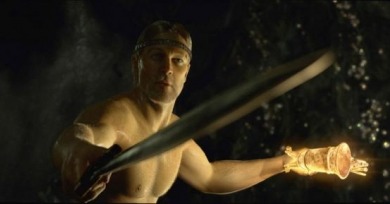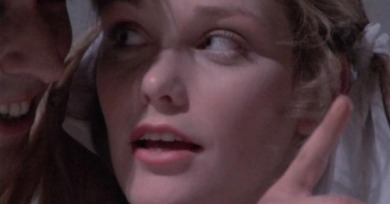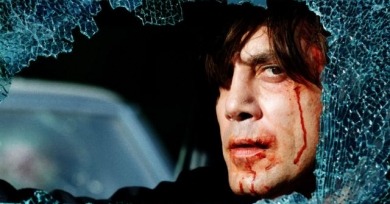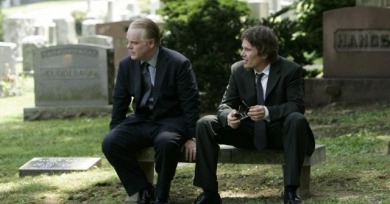Reviews
Like its protagonist, Jennifer Venditti’s acclaimed documentary Billy the Kid is both pretty hard to dislike and difficult to parse.
Though it’s both a predictable culture-clash comedy and a gentle plea for people of different political backgrounds to “just get along,” The Band’s Visit nevertheless manages to use its central contrivances and inevitable clichés to its favor, and becomes something ethereal and winning.
It’s not inconceivable that the single poet often attributed to the “official” recorded text of Beowulf might have been aware that in the very process of committing to parchment a mess of real historical figures, locations, and occurrences blended with freshly imagined interpretations of traditional legend and fictions he was performing an utterly new act.
Point of view gets a major ocular workout in Julian Schnabel’s The Diving Bell and the Butterfly, which forces viewers to identify so fully with its paralyzed main character that even the peripheries of the frame seem like unapproachable boundaries.
No grand artistic summation or even a proper refining of pet themes and motifs, Paranoid Park finds Gus Van Sant further whittling on the same piece of wood. It must be a nub by this point.
If Southland Tales is indeed reflective of “these times of ours,” with its doomsday rhetoric and heightened pop culture grotesquerie, then it’s simply part of the problem, replacing a possible space for conversation with more cheap bombast (disguised as self-critique).
Those hoping that I’m Not There, with its splintered Dylans encompassing different portions of the man’s career, is the ur-text that will provide a greatest hits of a life (like a Ray or Walk the Line) will be sorely disappointed with Haynes’s more ambitious project.
Margot is shocking for containing nary an event or interaction that corresponds to anything resembling real life, and this from a director often so good at representing the sad hilarity of awkward moments.
Expensively mounted without being overly glossy (credit here to grit maestro DP Harris Savides, on one hell of a run) and populated almost entirely by familiar faces, it pivots on a well-established postulation: the mobster (or pusherman) as late-capitalist avatar.
Drawing faithfully, this non-reader assumes, from the source novel, the Coens occupy themselves with the necessary, functional questions that so many thrillers (even the good ones) gloss over.
It’s good to have the Coen Brothers back.
Somewhat into Sidney Lumet’s remarkable Before the Devil Knows You’re Dead there’s an astonishing, wordless scene: Andy (Philip Seymour Hoffman), a lumbering account executive for a real estate firm, slowly dismantles the interior of his Pottery Barn catalog condo.













